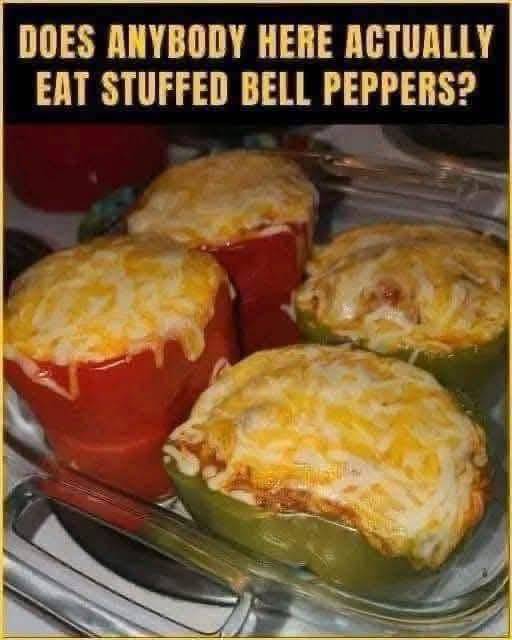Method for Storing
Storing Leftover Stuffed Peppers
Cool Down:
Allow the stuffed bell peppers to cool to room temperature after cooking. This helps prevent condensation, which can lead to sogginess and spoilage.
Use Airtight Containers:
Place the cooled stuffed peppers in an airtight container. If you have multiple peppers, consider using a container that can fit them upright to avoid squishing.
Label and Date:
Label the container with the date so you can keep track of how long they’ve been stored.
Refrigeration
Storage Duration:
Store leftover stuffed bell peppers in the refrigerator for up to 3-5 days. Reheat them thoroughly before consuming.
Freezing
Freezing Peppers:
For longer storage, you can freeze stuffed bell peppers. Wrap each pepper tightly in plastic wrap or aluminum foil, then place them in a freezer-safe container or heavy-duty freezer bag. Remove as much air as possible to prevent freezer burn.
Storage Duration:
Frozen stuffed peppers can be stored for up to 3 months. While they may remain safe to eat beyond this time, the quality may decline.
Reheating
Thawing:
When ready to eat, thaw frozen stuffed peppers in the refrigerator overnight. For quicker thawing, you can use the microwave’s defrost setting.
Reheating:
To reheat, place the peppers in a baking dish and cover with foil. Heat in a preheated oven at 350°F (175°C) for about 20-25 minutes or until warmed through. You can also reheat them in the microwave, but be cautious to avoid overcooking.
Check for Doneness:
Ensure the internal temperature reaches at least 165°F (74°C) before serving.
Tips for Best Results
Avoid Storing Uncooked Peppers: If you prepare the peppers in advance but haven’t cooked them yet, store the filling separately in the refrigerator.
Check for Spoilage: If the peppers have an off smell or unusual texture, it’s best to discard them.
Conclusion
By following these storage methods, you can enjoy your delicious stuffed bell peppers for days after cooking.
Proper storage not only helps maintain their quality but also reduces food waste. If you have any more questions or need further tips, feel free to ask!

